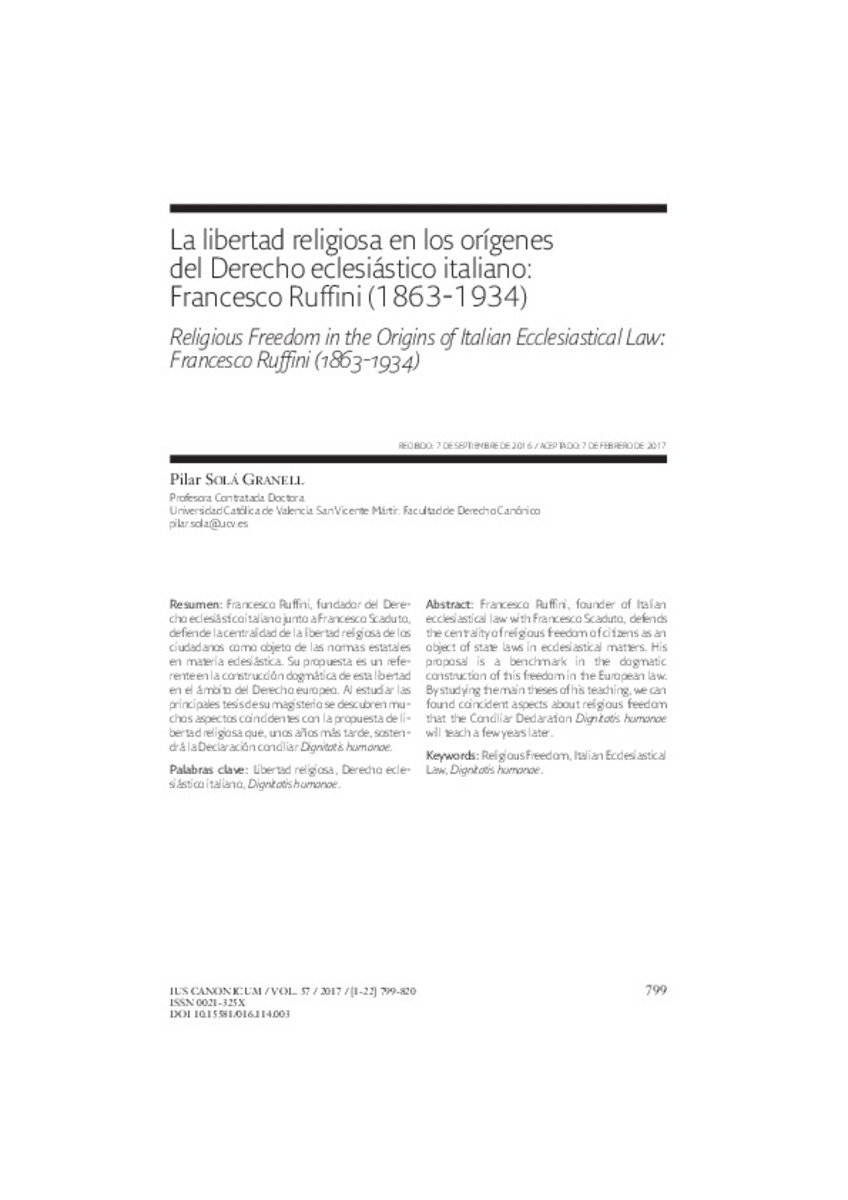La libertad religiosa en los orígenes del Derecho eclesiástico italiano: Francesco Ruffini (1863-1934)
Other Titles:
Religious Freedom in the Origins of Italian Ecclesiastical Law: Francesco Ruffini (1863-1934)
Keywords:
Libertad religiosa
Derecho eclesiástico italiano
Dignitatis humanae
Religious freedom
Italian Ecclesiastical Law
Dignitatis humanae
Publisher:
Servicio de Publicaciones de la Universidad de Navarra
Citation:
Solá-Granell, P. (Pilar)
Statistics and impact
0 citas en

0 citas en

Items in Dadun are protected by copyright, with all rights reserved, unless otherwise indicated.








